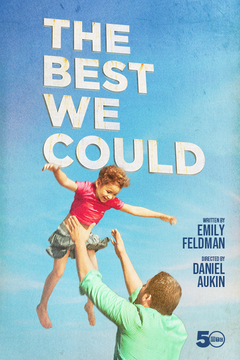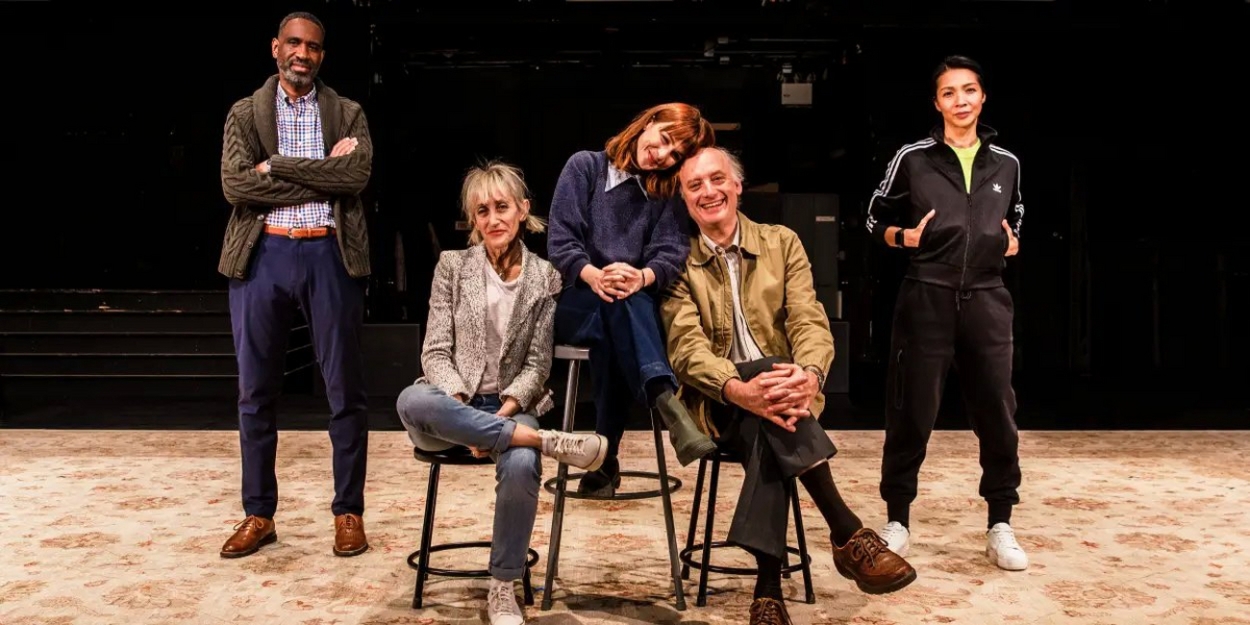Review Roundup: THE BEST WE COULD (A FAMILY TRAGEDY) Opens at New York City Center
The production opened last night, Wednesday, March 1, at New York City Center - Stage I.

|
|

Manhattan Theatre Club's world premiere The Best We Could (a family tragedy), written by Emily Feldman and directed by Daniel Aukin, opened last night, Wednesday, March 1, at New York City Center - Stage I (131 West 55th Street).
The cast of The Best We Could (a family tragedy) features Aya Cash ("The Boys," "Welcome to Flatch," Kings at The Public Theater), Brian D. Coats (August Wilson's Jitney at MTC / U.S. Tour, On The Levee), Maureen Sebastian (Lonely I'm Not, Thanks for Sharing), Constance Shulman (three-time SAG Award Winner for Best Ensemble in a Comedy Series for "Orange is the New Black"), and Tony Award® winner Frank Wood (Side Man, The Great Society).
A daughter's road trip with her father becomes a theatrical journey across more than just state lines. This funny, wise, and heartbreaking debut from an exciting new writer is brought to vibrant life by director Daniel Aukin, whom MTC audiences will remember from Fool for Love and Fulfillment Center.
Read what the critics are saying below!
Brian Scott Lipton, CitiTourNY: It can be argued that "The Best We Could" is just the latest in a seemingly endless series of plays about unhappy families; in fact, it shares some similarities to the recent "Pictures from Home." But as Leo Tolstoy famously wrote a long time ago, "happy families are all alike; every unhappy family is unhappy in its own way."
Deb Miller, DC Theater Arts: But in The Best We Could (a family tragedy), it's not just the fourth wall that's shattered. The play's bleak and depressing conclusion left me reeling and leaves us thinking about the generational changes and gender-based differences in perception and reaction to untoward situations with colleagues in the workplace, and conduct that ultimately destroys everyone involved and devastates those closest to them, as seen in Feldman's provocative work.
David Finkle, New York Stage Review: The ubiquitous figure registers more as a cutely pretentious presence, tempting a slightly annoyed reviewer to say that with The Best We Could, the playwright could have done better. But I'm resisting the cheap parting joke, preferring to report that from start to finish Feldman evidences real talent. Next time, it's likely she'll fare much better.
Elysa Gardner, New York Sun: The increasingly gaping divide between the world views of Baby Boomers and those of their post-Generation X children is often played for laughs these days, and certainly there are plenty of funny moments in "The Best We Could (a family tragedy)," Emily Feldman's absorbing, precociously humane account of an aging man's relationship with his 30-something daughter.
Gillian Russo, New York Theater Guide: The Best We Could makes us hyperaware of its theatricality, but the premise isn't fantastical. It's painfully plausible. It takes emotions and experiences we as humans champion - connection, family, integrity - and flips them on their head.
Marc Miller, Talkin' Broadway: Daniel Aukin directs astutely, and special mention must be made of Kate Marvin's sound design: In a play with a lot of talk about dogs, she simulates both the sound of a chain leash making its way across the stage and a squeeze toy that the mutt picks up. They're not onstage, and yet, thanks to her, they are. It's indicative of a production that gets the details right, and breaks our hearts a little as it does.
Carol Di Tosti, Theater Pizzazz: The director and the ensemble's fine work raises these questions whose answers are uncertain. Nevertheless, by the conclusion the superb acting, well-crafted dialogue and excellent staging have drawn us in to understand how this particular family gradually, metaphorically "falls off a cliff." Importantly, we understand the overriding theme that is a siren call. Do not be lured into oblivion, which lulls one to ignore the signs and secrets that destroy.
Amanda Marie Miller, Theatrely: The Best We Could, the new play from Emily Feldman and Manhattan Theatre Club, runs 90 minutes straight through, yet the story stuck with me quite a bit longer. In the New York City Center - Stage I space, this world premiere production uses conversational text and minimalist design to question family, trust, and false hopes. Barring a few surprisingly magical moments, The Best We Could cuts right to the chase and slices through all the conversations best suited for (a family tragedy), the subtitle of the play.
Videos
